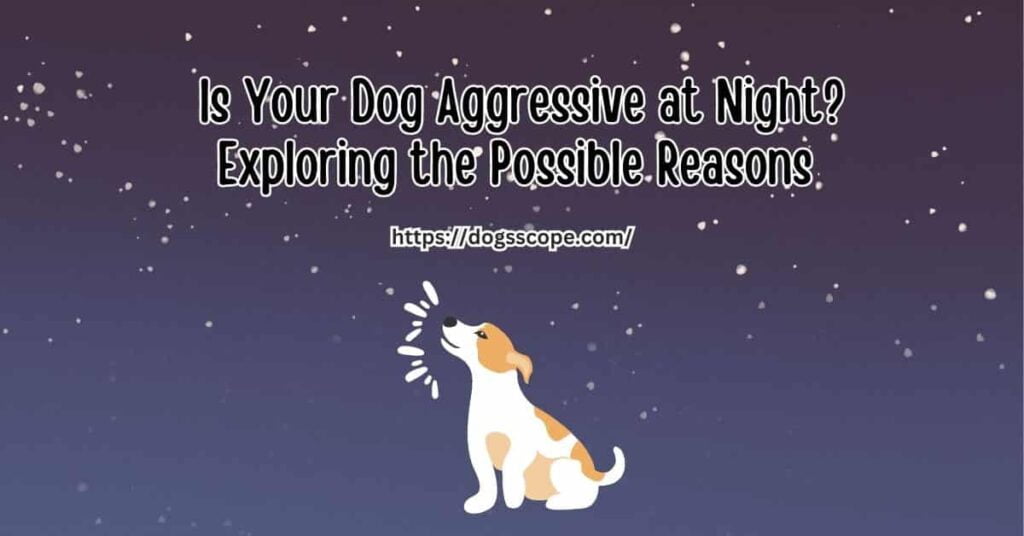The sleep of any pet owner can be disturbed by the loving dog if it has the problem of aggression at night. A dog can express their anger by barking, snarling, and posing in an attacking position.
Table of Contents
Dog aggression has many reasons which need find out before starting a treatment.
- Mental Health Disorders: The anxiety of separation, past bad memories, post-accident trauma, and the new environment for the dog can cause aggression at night.
- Protection: It is a natural habit of every dog to protect its territory from threats. But they usually believe other dogs, moving cars, and visitors as potential threats.
- Serotonin Syndrome: Serotonin is an essential neurotransmitter that manages the functioning of the heart, liver, behaviour and movement. It is caused by the consumption of antidepressant drugs in high dosages or giving with other medicines at same time.
- Weak eyesight and vision loss: Both conditions can make a dog more anxious and feared especially at night. It happened for many reasons including cataracts, glaucoma, and macular degeneration.
- Deafness: Hearing loss can also be a possible reason for aggression in dogs at night. Deafness is caused by many reasons which are old age, wax growth in the ear, tumour, ear infection or ear blockage by foreign object. If your pet dog doesn’t respond to its name or any sound then you must consult with the vet.
- Cognitive Dysfunction: This condition is a brain function problem in the dog that starts with memory loss, surrounding awareness, unable to respond and learn new things.
- Medicine’s side effects can also change the calm behaviour of dogs to aggressive at night.
Why does my senior dog aggressive at night ?
We mentioned some possible reasons above, but old age and other health issues like dementia, arthritis, and dental are also causes of aggression in old dogs after sunset.
How to stop a dog from being aggressive at night?
- To correct anger related behaviour issues pet training is needed at an early age. You should take some advice from pet behaviourist or vet.
- Make your pooch more social with other animals and visitors. By doing it, your dog will accept and change its behaviour when some unknown near to it.
- Give him or her a chew stick or toys to distract from anxiety or fear.
- Show that you are not invading space and taking away dog’s personal things like toys, beds, and food. If it shows any sign of aggression then correct it.
- Talk to the veterinarian, maybe the dog has some underlying health problems.

